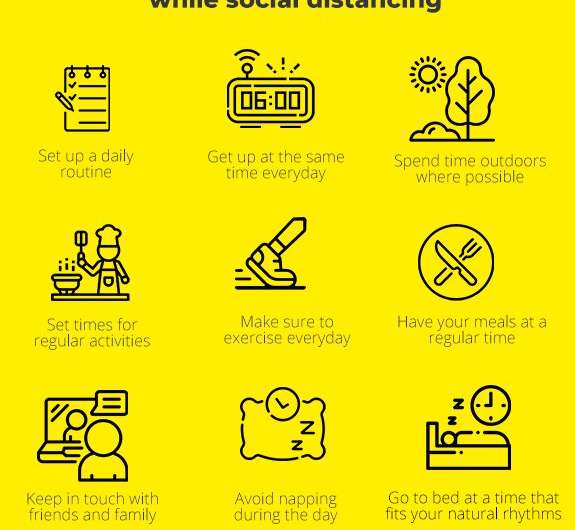Work-Life Balance A Generational Divide?
The Traditionalist View: Duty Before Leisure
For the Traditionalist generation (born roughly between 1928 and 1945), the concept of work-life balance often looks very different than it does for younger generations. Many grew up in a time where a strong work ethic was paramount, often prioritizing professional obligations above personal pursuits. Long hours and dedication to one’s employer were seen as signs of loyalty and commitment, and personal life was often shaped around the demands of work, rather than the other way around. This isn’t to say they didn’t value family, but the societal expectations placed a heavy emphasis on
Finding Your Flow Modern Work-Life Harmony
Understanding the Elusive “Flow” State
We’ve all experienced it – that feeling of deep immersion in a task, where time seems to melt away and you’re completely absorbed in what you’re doing. This is often referred to as “flow,” a state of intense focus and effortless concentration. Achieving flow isn’t about superhuman productivity; it’s about finding a sweet spot where challenge and skill align perfectly. When your skills meet a task that’s challenging but not overwhelming, you’re more likely to enter this productive and fulfilling state. The key lies in recognizing the conditions that foster flow and consciously creating them
Rethinking Work-Life Balance A New Approach
The Illusion of Balance
For years, we’ve chased the elusive “work-life balance,” picturing it as a perfectly calibrated scale, with work and life weighing equally on either side. But this vision is often unattainable, a fantasy fueled by unrealistic expectations. The very concept implies a rigid separation between two distinct spheres, when in reality, our lives are far more interwoven and fluid. Trying to achieve perfect balance can lead to feelings of inadequacy and frustration, especially when unexpected life events or demanding work periods throw the scale off kilter.
Integration, Not Separation: A Holistic Approach
Instead of striving for a
Reclaiming Your Time Finding Work-Life Balance
Understanding the Current Climate of Overwork
We live in a culture that often glorifies the “always-on” mentality. The constant ping of notifications, the pressure to be perpetually available, and the blurring lines between work and personal life have left many feeling overwhelmed and burnt out. It’s become increasingly common to sacrifice personal well-being for professional success, a trade-off that ultimately undermines both. We’re told that hard work equals success, but that equation often overlooks the importance of balance and the detrimental effects of chronic stress.
Identifying Your Time Thieves
Before you can reclaim your time, you need to understand where
Reclaiming Your Time Finding Work-Life Balance
Understanding the Struggle for Work-Life Balance
We all know the feeling. That constant tug-of-war between the demands of work and the desire for a fulfilling personal life. It’s a struggle many face, leaving us feeling stretched thin, stressed, and often disconnected from what truly matters. The lines blur, emails ping late into the night, and weekends are consumed by catching up on tasks. This isn’t sustainable, and it’s certainly not the recipe for a happy and healthy life. The key is to actively reclaim your time and create a sustainable work-life balance that serves you.
Identifying Your Time Thieves
Before
Optimal Body Health: Daily Routines

Daily Regimens for Optimal Body Health
Establishing Consistent Practices
Creating consistent daily routines is crucial for maintaining optimal body health. Habits like regular exercise, balanced nutrition, and sufficient rest form the foundation of a healthy lifestyle.
Exercise and Physical Activity
Regular exercise is key to maintaining body health. Engaging in physical activities, whether through structured workouts or daily movement, contributes to overall well-being.
Nutritious Eating Habits
A well-balanced diet is essential. Incorporating fruits, vegetables, lean proteins, and whole grains ensures the body receives essential nutrients for optimal function.
Hydration and Its Importance
Staying hydrated is often underestimated. Adequate water intake
Boost Your Body: Effective Tips for Vitality

Absolutely, here’s an article about body-boosting tips:
Unlocking Vitality: Body-Boosting Tips
Maintaining vitality and ensuring your body operates at its best is a goal for many. Here are some effective tips that can elevate your well-being and boost your body’s vitality.
Nutrition for Energy
The fuel your body requires to function optimally comes from the food you consume. Opt for a balanced diet rich in nutrients, including fruits, vegetables, lean proteins, and whole grains. Adequate hydration also plays a pivotal role in maintaining energy levels.
Regular Exercise Routine
Physical activity is fundamental to keeping your body in top form. Establish
Fitness Lifestyle Guide: Effective Tips

Mastering Fitness: Essential Lifestyle Tips
Setting Realistic Goals
Begin by setting achievable fitness goals. Realistic targets help maintain motivation and allow for gradual progress toward a healthier lifestyle.
Diversify Exercise Routines
Varying workout routines is key. Incorporate cardio, strength training, flexibility exercises, and fun activities to keep workouts engaging and effective.
Prioritize Consistency Over Intensity
Consistency is paramount in fitness. Regular exercise, even if less intense, yields better long-term results compared to sporadic, high-intensity workouts.
Embrace Balanced Nutrition
Nutrition plays a vital role. Focus on a balanced diet, including whole foods, adequate proteins, healthy fats, and a variety of fruits
Guiding Healthy Lifestyles: Coaching Approach

Nurturing Wellness: The Role of Healthy Lifestyle Coaching
Understanding Healthy Lifestyle Coaching
Healthy lifestyle coaching encompasses guidance and support to help individuals adopt and sustain healthy habits. It involves personalized strategies tailored to individual needs.
Holistic Approach to Well-Being
A holistic approach is central to healthy lifestyle coaching. It addresses various aspects of wellness, including nutrition, physical activity, stress management, and mental well-being.
Personalized Coaching Plans
Coaching plans are individualized to meet specific goals and lifestyles. Coaches work collaboratively, empowering individuals to make sustainable lifestyle changes.
Nutrition and Dietary Guidance
Nutrition is a core element of healthy lifestyle coaching. Coaches
Balanced Living: Essential Advice
Absolutely, here’s an article focusing on advice for balanced living:
Prioritizing Balance in Life
Achieving a balanced life is a pursuit many of us strive for, aiming to harmonize various aspects of our existence. From work commitments to personal relationships and health, finding equilibrium is key to overall well-being.
Maintaining a Healthy Lifestyle
Central to balanced living is maintaining a healthy lifestyle. This encompasses regular exercise, a nutritious diet, and ample sleep. Such habits form the foundation for physical health, fostering energy and vitality necessary to tackle daily challenges.
Managing Stress Effectively
Stress management is crucial in the quest for






